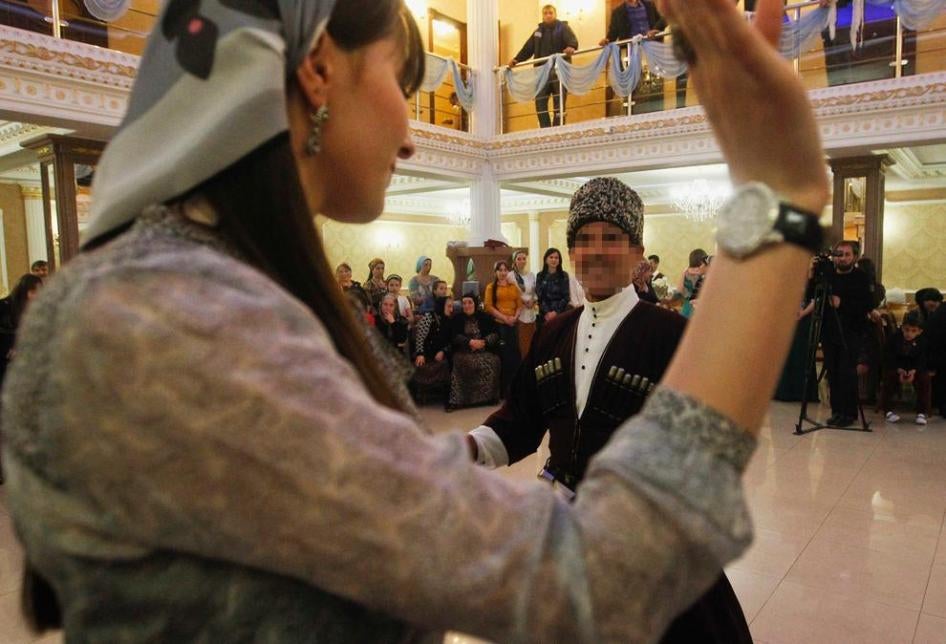Chechnya’s strongman, Ramzan Kadyrov, launched a program in June to reunite families divided by divorce. Ostensibly concerned with rising divorce rates and the impact of such break ups on children, Kadyrov created local councils “for harmonising marriage and family relations.” Made up of public officials and Muslim religious authorities, the councils draw up lists of divorced couples in their districts and approach the spouses, suggesting reconciliation.
By 12 July, Chechen media applauded the reunification of six families, by 25 July the number had risen to 240, and on 21 August, Chechnya’s state television and radio broadcaster triumphantly reported that the council’s work resulted in the reunification of 948 families.
The claim that close to 1,000 divorced couples have chosen to reunite two months after a ruthless and abusive autocrat declared such family reunifications a priority, should be treated with scepticism and concern that they are not all voluntary. And yet many Chechen women discussing the new initiative on messaging apps, including some reunited with their ex-husbands, express enthusiastic support for Kadyrov’s initiative.
The real reason may not be obvious to those outside Chechnya: embracing this new “family reunification” program is the only way these women, their female friends and relatives, can get access to the children they lost to divorce. Chechen traditional laws, often upheld by local authorities even when they run contrary to Russia’s laws and international human rights obligations, stipulate that children belong with the father and his family. Having worked in Chechnya for over 15 years, I’ve met numerous women who stayed in abusive marriages for decades because they could not contemplate losing their children. Other Chechen acquaintances of mine left their husbands, unable to put up with abuse, and barely if ever get to see their kids.
But in recent years, several Chechen lawyers told me, judges in Chechnya have started to rule more often in favour of mothers in at least some custody cases, citing the best interests of the children. The correct standard for deciding custody of a child should indeed be what is in their best interest, and not their parent’s gender.
Kadyrov, an ardent proponent of so-called traditional values, did not seem to appreciate these developments. When commenting on his family reunification program in a televised broadcast in July, he grumbled:
Most [divorced] mothers want to take the kids away from the fathers, go to the muftiat [local Muslim authority], to the elders, to all the relatives. And they also come to us [the government]… they rent an apartment in the city and ask for money. One told me she needed an apartment [to live with her children]… [We] brought in the father [of her children], I asked him why aren’t you providing for your family? And he says… this woman wouldn’t leave me alone [until she] took the kids… If they can live together until they have five kids, why can’t [they] then live together for the sake of the kids?
Kadyrov says the family reunification programme’s primary objective is to benefit the children who bear the brunt of their parents’ divorce. His aspiration may be genuine, but it does not give him the right to force families to stay together. When those approached by the “family relations” councils refuse to reunite with their ex-spouses, the councils’ representatives reportedly pressure them, emphasising that “this is Kadyrov’s instruction” and therefore must be obeyed.
For women who have escaped abusive relationships, such “reunification” could put them at risk of further physical and psychological harm, with potentially deadly consequences.
Kadyrov rules over Chechnya with an iron fist, commanding all aspects of political and social life there. Given that harsh reality, it’s hard not to dread that in the wake of his new project local courts will stop supporting mothers’ custody claims for fear of retaliation by the authorities.
Indeed, two women from Chechnya who managed to keep their children after divorce told me the other day that “reconciliation officials” had approached them and urged them to return to their ex-husbands. They adamantly reject the idea but fear their husbands, who are also under pressure from the authorities, will go to court and get custody of the kids in no time at all. Their dread is real.









